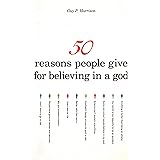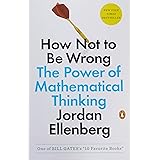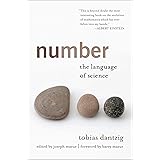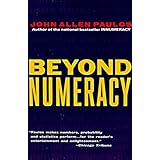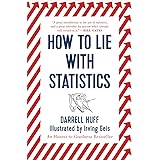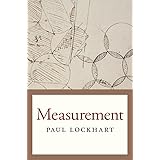Innumeracy: Mathematical Illiteracy and Its Consequences First Edition
by
John Allen Paulos
(Author)
|
John Allen Paulos
(Author)
Find all the books, read about the author, and more.
See search results for this author
Are you an author?
Learn about Author Central
|


ISBN-13:
978-0809058402
ISBN-10:
0809058405
Why is ISBN important?
ISBN
 Scan an ISBN with your phone
Scan an ISBN with your phone
Use the Amazon App to scan ISBNs and compare prices.
This bar-code number lets you verify that you're getting exactly the right version or edition of a book. The 13-digit and 10-digit formats both work.

Use the Amazon App to scan ISBNs and compare prices.
Add to book club
Loading your book clubs
There was a problem loading your book clubs. Please try again.
Not in a club?
Learn more


Join or create book clubs

Choose books together

Track your books
Bring your club to Amazon Book Clubs, start a new book club and invite your friends to join, or find a club that’s right for you for free.
Buy new:
$13.99
In Stock.
Ships from and sold by Amazon.com.

New releases
Explore popular titles in every genre and find something you love. See more
Enter your mobile number or email address below and we'll send you a link to download the free Kindle App. Then you can start reading Kindle books on your smartphone, tablet, or computer - no Kindle device required.
-
Apple

-
Android

-
Windows Phone

-
Android

|
Download to your computer
|
Kindle Cloud Reader
|
Frequently bought together
Customers who viewed this item also viewed
Page 1 of 1 Start overPage 1 of 1
Customers who bought this item also bought
Page 1 of 1 Start overPage 1 of 1
Editorial Reviews
Review
“Our society would be unimaginably different if the average person truly understood the ideas in this marvelous and important book.” ―Douglas Hofstadter
“[An] elegant ... Survival Manual ... Brief, witty and full of practical applications.” ―Stefan Kanfer, Time
About the Author
John Allen Paulos, professor of mathematics at Temple University and the author of several other popular books on mathematics, is a regular contributor to national publications, including The New York Times and Newsweek. He lives in Philadelphia, Pennsylvania.
Start reading Innumeracy: Mathematical Illiteracy and Its Consequences on your Kindle in under a minute.
Don't have a Kindle? Get your Kindle here, or download a FREE Kindle Reading App.
Don't have a Kindle? Get your Kindle here, or download a FREE Kindle Reading App.
Product details
- Publisher : HOLT MCDOUGAL; First edition (August 18, 2001)
- Language : English
- Paperback : 180 pages
- ISBN-10 : 0809058405
- ISBN-13 : 978-0809058402
- Reading age : 14 - 18 years
- Item Weight : 6.7 ounces
- Dimensions : 5.5 x 0.52 x 8.25 inches
-
Best Sellers Rank:
#234,673 in Books (See Top 100 in Books)
- #191 in Social Studies Teaching Materials
- #192 in Teen & Young Adult Language Arts Books
- #276 in Statistics (Books)
- Customer Reviews:
Customer reviews
4.5 out of 5 stars
4.5 out of 5
442 global ratings
How are ratings calculated?
To calculate the overall star rating and percentage breakdown by star, we don’t use a simple average. Instead, our system considers things like how recent a review is and if the reviewer bought the item on Amazon. It also analyzes reviews to verify trustworthiness.
Top reviews
Top reviews from the United States
There was a problem filtering reviews right now. Please try again later.
Reviewed in the United States on December 5, 2013
Verified Purchase
I bought this book after it was referenced in the very well-written The Panic Virus (Seth Mnookin), which I'd highly recommend. I was curious about a professional's take on math skills in the general population. There's plenty of good insight and information, but it's like the author couldn't make up his mind if he wanted to rant or educate. He covers a number of numerical fallacies and adds explanations, but often it feels like the explanation would come up short to anyone who really didn't understand the particular issue being covered. I'm quite good with math myself so it was easy for me to follow everything, but parts of the book came off more as a "we smart people get why that's so dumb". I think the book could be improved by either tightening it up and focusing on a more advanced reader group or by really fleshing out the explanations to try and really help readers who are not good at math and actually suffer from the innumeracy/ies he describes. He could probably have done both even, if he set up chapters with a high-level concept, issue and effects section, then an educational/explanation section that the advanced reader could easily skip over.
Lots of good, but could really use a revision or two.
Lots of good, but could really use a revision or two.
35 people found this helpful
Report abuse
Reviewed in the United States on July 31, 2020
Verified Purchase
We should expect our leaders — in business, in the public sector, in the household — to be driven by an interest in facts and data. In the process we should, as Paulos puts it, be able to at least “deal comfortably with the fundamental notions of number and chance.” This is basic mathematical literacy, and his book lays out a list of consequences from our failure to place enough importance, collectively, on understanding the general math that governs our world and our work and, as importantly, the statistics we use to describe it.
The value here is less in being about to perform complex or even intermediate calculations — although that certainly has its place in many professions. For most of us, it’s more about being able to contextualize numbers. This is critical in, to pick one professional sphere, public policy and administration. If a policy maker raises the prospect that 500 deaths over a holiday weekend represented a “carnage” that justifies new laws or regulations, a distressingly high number of us would not be positioned to identify his or her mistake via the “broad base fallacy” (where 500 deaths was on par with a typical holiday weekend where millions of people undertake countless activities, each of which carry a minor chance of death).
Paulos, a mathematician at Temple and author of a handful of accessible books along similar lines as Innumeracy, spreads himself a little thin across his illustrative examples. I suspect the narrative weave from one topic to the next would’ve been aided by the use of fewer examples that he returned again and again in varying contexts. (I exclude the example of coin flips, which he uses often and which is every statisticians’ go-to example.) But, broadly, Innumeracy hits its mark and I thoroughly enjoyed and recommend it. It’s a clear look at the value of scientific and mathematical literacy, something those who have invested effort to achieve know provides real world value. If we, as a society, could more easily carve through news stories based on flimsy statistics, we’d be better positioned to contextualize, discuss, and act on, our more pressing challenges. Paulos suggests media outlets themselves try employing “statistical ombudsmen” to help filter the real numbers from the bad before they get to work describing the world for viewers, listeners and readers, and I wholeheartedly agree.
The value here is less in being about to perform complex or even intermediate calculations — although that certainly has its place in many professions. For most of us, it’s more about being able to contextualize numbers. This is critical in, to pick one professional sphere, public policy and administration. If a policy maker raises the prospect that 500 deaths over a holiday weekend represented a “carnage” that justifies new laws or regulations, a distressingly high number of us would not be positioned to identify his or her mistake via the “broad base fallacy” (where 500 deaths was on par with a typical holiday weekend where millions of people undertake countless activities, each of which carry a minor chance of death).
Paulos, a mathematician at Temple and author of a handful of accessible books along similar lines as Innumeracy, spreads himself a little thin across his illustrative examples. I suspect the narrative weave from one topic to the next would’ve been aided by the use of fewer examples that he returned again and again in varying contexts. (I exclude the example of coin flips, which he uses often and which is every statisticians’ go-to example.) But, broadly, Innumeracy hits its mark and I thoroughly enjoyed and recommend it. It’s a clear look at the value of scientific and mathematical literacy, something those who have invested effort to achieve know provides real world value. If we, as a society, could more easily carve through news stories based on flimsy statistics, we’d be better positioned to contextualize, discuss, and act on, our more pressing challenges. Paulos suggests media outlets themselves try employing “statistical ombudsmen” to help filter the real numbers from the bad before they get to work describing the world for viewers, listeners and readers, and I wholeheartedly agree.
2 people found this helpful
Report abuse
Reviewed in the United States on March 1, 2017
Verified Purchase
The author goes through a large number of real-world examples of applied mathematics, that I (a retired engineer) had thought were like breathing out, breathing in. When I shared a couple of them with my adolescent grand-children, I found some enthusiastic "aha!!" moments. Huh...
9 people found this helpful
Report abuse
Reviewed in the United States on April 12, 2012
Verified Purchase
Innumeracy opens your mind and makes you question things you have heard on television and the news. John Allen Paulos, who is fantastically witty, explains complex and simple misconceptions in a manner that almost anyone can understand. Paulos writes takes you back into history with Julius Caesar and brings you back to the present with baseball figures and common mistakes in statistics. It opens your mind to just what exactly numbers can do and how they revolve around almost every aspect in our lives. Innumeracy makes you look at yourself and others around you and see how understanding numbers can help you improve in numerous ways. Paulos applies mathematics to almost every aspect in life. If you believe you are "not a math person," then this is the book for you. Using real life examples, Paulos makes you understand why math and numbers are so important. Innumeracy shows how celebrities, presidents, and major politicians use numbers in the wrong way. It is amazing what you will find out in this information-packed book. From statistics to probability to the multiplication principle, this book has it all and is written in such a way that makes even the most boring subject interesting to any reader. Witty and to-the-point, Paulos writes a book that could change the way people think for the better and most likely improve our society as a whole. If everyone read this book, it is amazing what the results would be. He takes the most relevant and sometimes controversial subjects and applies them to math while pointing out how some things are not correct at all. You will soon find yourself thinking twice about saying, "I am not a math person" or "Math just isn't my subject."
7 people found this helpful
Report abuse
Reviewed in the United States on October 27, 2017
Verified Purchase
This is the book for people who want to go one step beyond HOW TO LIE WITH STATISTICS. So many of us are bewitched by sloppy statistics, by flawed procedurals that wind up in the mass media and other lies, some benign, some not, that author Paulos felt this book was necessary. He went on to write a couple more according to the same themes.
3 people found this helpful
Report abuse
Top reviews from other countries
Simeon Stylites
3.0 out of 5 stars
A Disappointed Hope
Reviewed in the United Kingdom on October 20, 2020Verified Purchase
My own failure to notice the subtitle of this book led me to hope that it might remedy my own innumeracy. Alas, it is a work that bewails the ubiquity of innumeracy in today’s world and laments some of the consequences of this phenomenon.
It has in no way alleviated my aversion to numbers. It has, however, taught me to be more critical of dubious statistical claims. For this I am grateful to the author.
He has managed to make an engaging read out of subject that many might otherwise regard as dull.
It has in no way alleviated my aversion to numbers. It has, however, taught me to be more critical of dubious statistical claims. For this I am grateful to the author.
He has managed to make an engaging read out of subject that many might otherwise regard as dull.
One person found this helpful
Report abuse
John
4.0 out of 5 stars
Informative book, very easy to read
Reviewed in the United Kingdom on June 28, 2020Verified Purchase
A really great book and you can certainly learn a lot. The reason for the 4 stars and my only issue is that there are chapters about the education system and how it can be improved, specifically when it comes mathematics. And while I agree with the points made by the author, I don't think it fits the tone of the rest of the book. It's like you have started reading a completely different book and you end up wondering how long until it goes back to the way it was (if at all).
Amazon Customer
4.0 out of 5 stars
Read this book
Reviewed in the United Kingdom on January 26, 2021Verified Purchase
Fantastic for those who like mathematics and science/critical thinking
Essential for those who don’t
If you don’t Ever ask the question “what do you mean” or “where did you get that from?” Then this book will explain to you why these questions are important
Smaller than I’d have thought but a lot is packed into it
Also you don’t need to be a maths whizz to understand it but there are basic mathematical principles you should know to help you get through it - particularly the language of maths
Essential for those who don’t
If you don’t Ever ask the question “what do you mean” or “where did you get that from?” Then this book will explain to you why these questions are important
Smaller than I’d have thought but a lot is packed into it
Also you don’t need to be a maths whizz to understand it but there are basic mathematical principles you should know to help you get through it - particularly the language of maths
Reg Roberts
5.0 out of 5 stars
Excellent!
Reviewed in the United Kingdom on December 20, 2012Verified Purchase
I thoroughly enjoyed this book. Although my daily work involves interpretation of numbers and statistics, I haven't studied Maths in any formal way since 'O' Level in 1979 and I had no problem following the concepts and logic.
John Allen Paulos has the happy knack of taking one through a process to a potentially complex level in easy-to-understand and logical stages. The book really does make one realise that there's no reason why anyone should be able to say "I just don't get Maths". Unfortunately, the problem appears to stem from Primary school teachers who often lack confidence themselves in Maths and either fail to explain basic concepts or fail to engage and enthuse young children. By the time children have access to specialist Maths teachers at Secondary school, they are often confused and feel uncomfortable with mathematical concepts and, for many, there's no way back!
This book should be required reading for any educationalist or prospective / working teacher.
John Allen Paulos has the happy knack of taking one through a process to a potentially complex level in easy-to-understand and logical stages. The book really does make one realise that there's no reason why anyone should be able to say "I just don't get Maths". Unfortunately, the problem appears to stem from Primary school teachers who often lack confidence themselves in Maths and either fail to explain basic concepts or fail to engage and enthuse young children. By the time children have access to specialist Maths teachers at Secondary school, they are often confused and feel uncomfortable with mathematical concepts and, for many, there's no way back!
This book should be required reading for any educationalist or prospective / working teacher.
2 people found this helpful
Report abuse
Andrew Dalby
5.0 out of 5 stars
Why we still cannot cope with numbers
Reviewed in the United Kingdom on September 29, 2011Verified Purchase
Paulos wrote this book nearly twenty five years ago but the same problems he identified with how people see maths and with how people use numbers are as evident today as they were then. He presents a clear and elementary commentary about how we misuse numbers especially probability and statistics to get a misleading view of the world dominated by scare stories and exaggerated risk while we ignore the real risks. This is made worse by a media that tries to titillate rather than present facts and by an education system that fails to create a critical audience.
In the 25 years sadly little has changed but Paulos' book remains as relevant as ever and his solutions as powerful as ever. What we need is more people to read his book and put it into practice and so I would recommend it to anyone who is interested in sorting the facts from the hype.
In the 25 years sadly little has changed but Paulos' book remains as relevant as ever and his solutions as powerful as ever. What we need is more people to read his book and put it into practice and so I would recommend it to anyone who is interested in sorting the facts from the hype.
One person found this helpful
Report abuse
Get everything you need
Page 1 of 1 Start overPage 1 of 1
Pages with related products.
See and discover other items: math art, mathematical games, john holt, mathematical statistics books


